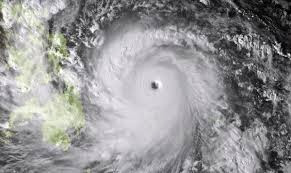Cabinet ministers had prohibited South African media houses from publishing or airing picture of the palatial residence that has cost tax payers millions of dollars, warning that this would break security laws.
Mr Zuma’s Nkandla residence is at the centre of a row after it emerged that the government had used $20m of taxpayers’ money to refurbish it.
[Afkinsider] South African papers have defied a government warning and published images of President Jacob Zuma’s Nkandla residence, the BBC reported on Saturday.
Cabinet ministers had prohibited South African media houses from publishing or airing picture of the palatial residence that has cost tax payers millions of dollars, warning that this would break security laws.
Mr Zuma’s Nkandla residence is at the centre of a row after it emerged that the government had used $20m of taxpayers’ money to refurbish it...
The government said it will arrest anyone who published images or footage of the estate, but a group of South African editors described the warning as “absurd”.
BBC reported that The Times newspaper had the headline “So, arrest us”, above a picture of the luxury thatched-roof compound. The Star newspaper had a photo of the homestead with a big red cross over it and the caption: “Look away! What ministers don’t want you to see”.
The upgrades to Mr Zuma’s private residence include a helipad and an underground bunker, which the government says are needed for security reasons.
The contract is being investigated by South Africa’s public protector, or anti-corruption watchdog, Thuli Madonsela, amid allegations that costs were inflated, and that the renovations went far beyond what the rules allow for a politician’s private home.
Earlier this month, security ministers went to court to try to block Ms Madonsela from publishing her report.
Following the publication of the photos, the government has issued a statement, saying that newspapers are within their rights to publish photos of the estate but “zooming into safety and security features… is a challenge as it compromises national security”.
BBC Africa correspondent Andrew Harding said the issue is an awkward one for the governing African National Congress (ANC), with elections approaching next year. He says it also touches on deeper concerns about the undermining of South Africa’s young, but vital, democratic institutions.
 America's debt clock real time
America's debt clock real time


























